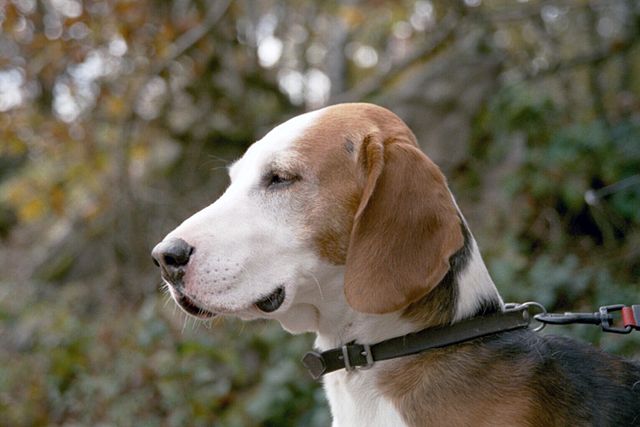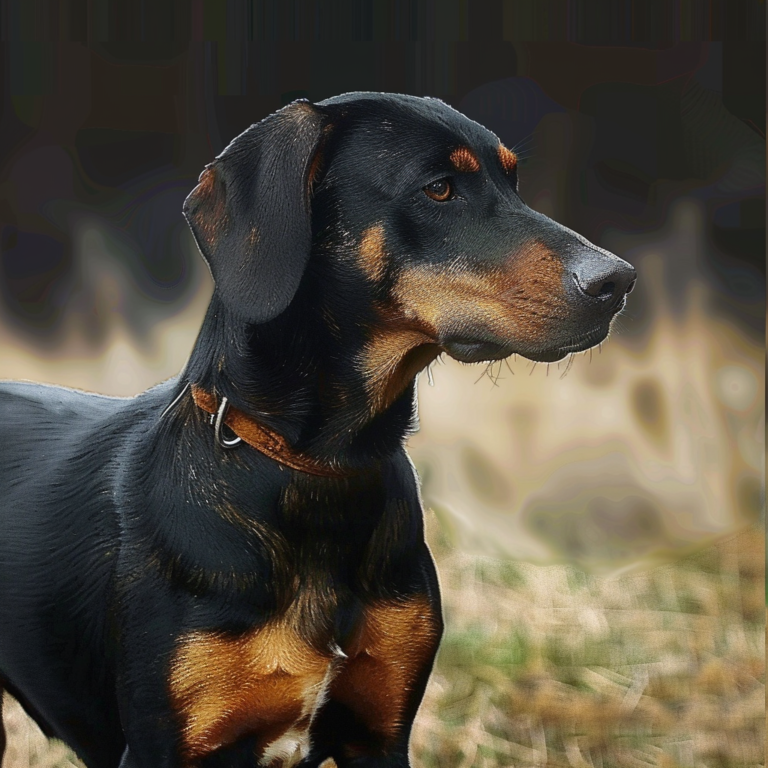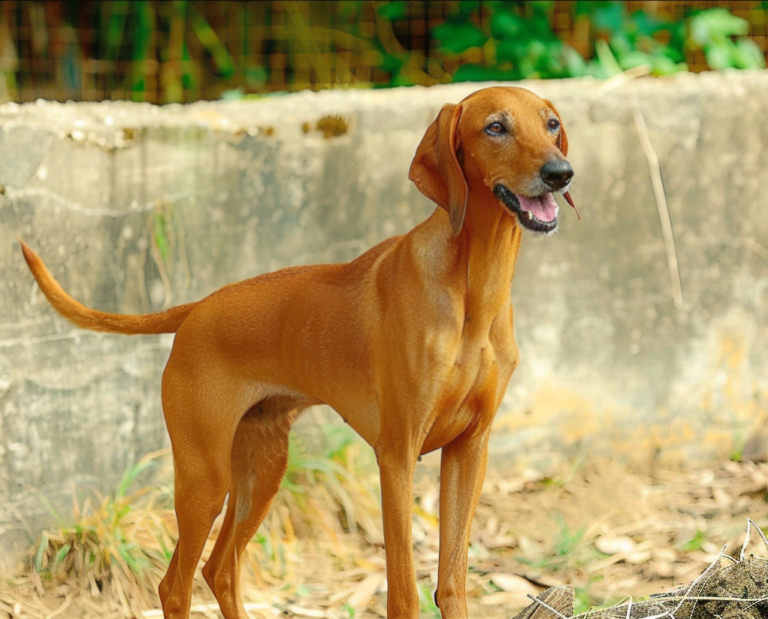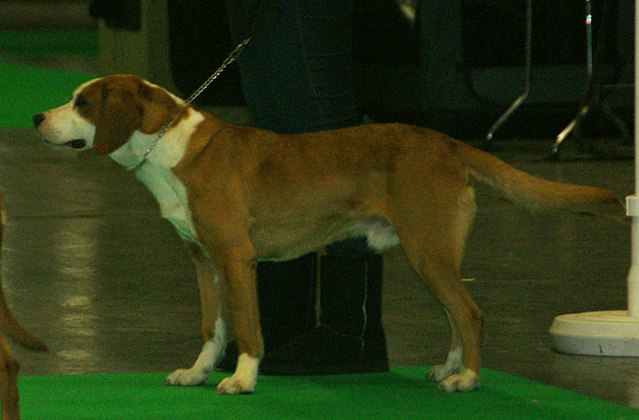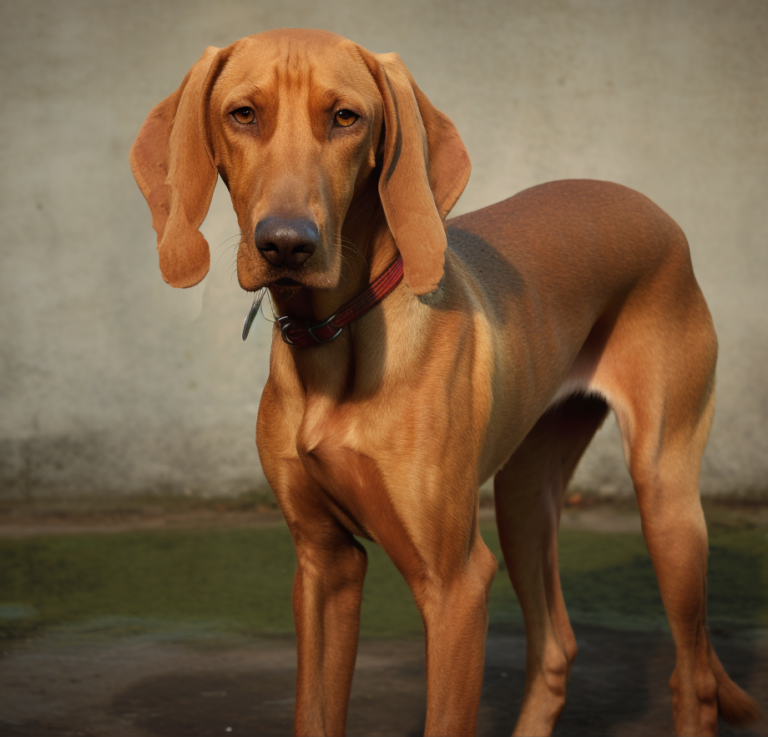The German Hound is a medium-sized scenthound. Always tricolored and possessing a thick yet smooth coat, he is considered an ancestor to all drop-eared hunting hounds. The breed is affectionate, sensitive to his owners’ emotions and fairly quiet when inside the house, yet enthusiastic and unwavering when hunting. He has a superb nose for tracking and a fiery hunting drive, but will come home at the end of the day and play with the children. Despite being recognized by the UKC in the United States, the breed isn’t well known outside Germany. This said, in his home country he does enjoy a modest popularity as both a hunting dog and pet.
Like many high energy hunting breeds, the German Hound needs to be given a lot of daily exercise in order to keep him out of trouble. He can become destructive and frustrating to live with if bored and under-exercised! He also requires plenty of social time with his owner (and other friends, if possible) as he is at his happiest when around others. While some scenthounds are totally fine living in outdoor kennels with just the company of other hounds, he far prefers life as a house dog. He doesn’t mind spending time with other dogs and is friendly and social with them, just as long as he also gets plenty of time with “his people” as well!
German Hounds are alert and will bark when people come to the door which makes them good watchdogs. They are fairly versatile when given a chance, and are far more than “just hunting dogs”. This said, they are still “hunting dogs” and as such are inclined to roam! Make sure that your fence is secure and kept locked, and keep them on leash when out for a walk. The Bracke might not be the best choice in homes with cats or other small pets as he may be inclined to hunt them. Nor is he an ideal candidate for people who live in small apartments or homes without yards. He really needs at least an hour a day to walk in addition to being able to stretch his legs in a securely fenced area.
When it comes to training, the German Hound needs an owner who can be firm yet fair. This is a smart breed that can be good at manipulating his owner – he needs an owner just as intelligent as he is! An owner must stay one step ahead of this independent hound without actually resorting to overly harsh tactics. He is gentle and submissive, and might shut down if he feels the training isn’t fair. Finally, take care to keep this dog on his toes while training (he can get bored easily) and make sure you don’t train in too distracting of an environment before he is ready. Scenthounds in general tend to shift away from training mode and into hunting mode when prey-animal-type distractions come into play. All of this said, he can be an obedient companion if given enough work and time!
German Hounds live about 11-12 years on average and are a relatively healthy breed. They stay the healthiest when kept on a strict exercise routine and given plenty of physical excursion with activities such as long walks, hikes and hunt outings. Some members of the breed have issues with hip dysplasia and/or bloat and the breed in general may be slightly more sensitive to anesthesia. This said, for the most part these hounds are healthier than many other breeds. Furthermore German Hounds are easy to care for in terms of grooming and require very little maintenance to keep them looking their best. Brushing once a week and the occasional bath is all that is needed for the coat. Check and clean the ears weekly as hanging ears are more likely to get dirt and gunk buildup. Add in time for training, social time and a lot of exercise – and you’ll have a happy German Hound!
